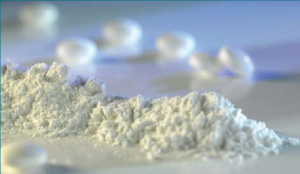Judging from trends in other countries, the next few weeks will be critical to ramp up production of essential testing kits and personal protection equipment (such as surgical masks and gloves).
Critical medical supplies
The 8 most critical elements appear to be:
- Nylon-Plastic Swabs used for Testing Kits
- Plastic Vials used for Testing Kits
- Surgical Gloves
- Surgical Masks
- Ventilators
- Chemical reagents needed for the tests
- Pharmaceutical production for any drugs or vaccines that are eventually developed
- Hand-sanitizers and personal cleaning products
Many of these elements currently use single use plastics or have some sort of sustainability challenge. Without doubt, the immediate focus should (and is) on meeting the impending need. Indeed, many innovative approaches are being used during this emergency in the very short term.
A more sustainable medical supply chain
Here is an overview of the 8 most critical elements, and how other industries are exploring potential sustainable alternatives.
1. Swabs for Testing Kits

2. Plastic Vials used for Testing Kits

The samples for testing must be safely contained and transported to the testing machines. Currently, most supply chains use medical-grade plastic bottles or vials to transport throat and nose swabs. This includes the plastic wrapper packaging around each test. However, in the future, several alternatives could be explored such as plant-based plastics, waterproof and recycled cardboard bottles (similar to milk cartons), ocean recycled plastics. There has been significant technological development around alternatives to plastic liquid bottles that could be applied to the medical supply chain, without compromising the integrity of sample collection.
3. Disposal surgical gloves

The use of disposal surgical gloves is critical in a medical setting, particularly in preventing contamination from patient to patient during the COVID-19 crisis. However, if improperly discarded, this could cause significant damage in the environment. Autopsies on several beached whales have shown swallowed plastics and surgical gloves as contributing factors in their death. So far the big difference has been between single-use latex gloves and recyclable materials within nitrile gloves. However, there is a need for greater innovation around bio-degradable alternatives that meet the same medical standards but are able to decompose into the environment. At the same time, some companies are looking at end of life reuse of such gloves into waste bags.
4. Surgical Masks

There are two types of masks that are often discussed in this crisis: loosely fitting surgical masks and tightly fitting N95 respirators. New legislation passed on Wednesday allows industrial producers like 3M, Honeywell and Moldex to produce 550 million masks for the healthcare sector (still short of the 3.5 billion forecast US demand for 2020). There are several components for the masks, that are leading to DIY efforts to address the shortage. These include plastic straps and filters. Sustainable alternatives to the plastic components could be developed within the synthetic biology community, with companies like Bolt Threads that makes cloth from spider silk, and companies exploring 3D printing for mask components that could source from more sustainable feedstock.
5. Ventilators

Estimates are that over the course of the year, 960,000 patients may need ventilators (not all at the same time). At the same time researchers from John Hopkins calculated 172,000 ventilators are currently available within the US. There has been a movement for open-sourced ventilator designs, claims that pet ventilators are applicable to human ventilators and even promises from Tesla, Ford, GM, and in the UK, ventilator blueprints have been sent to 60 manufacturers such as Rolls Royce, Jaguar and Airbus to produce ventilators from their production systems. A ventilator is a very sensitive and life critical system, however, many of the supporting components for ventilators currently use plastics that could be built from alternatives one day. A variety of biodegradable polymers, including ones with engineered sensing and function, are in development.
6. Chemical Reagents
A cocktail of several critical chemicals, called reagents, are needed for the COVID-19 tests. Laboratories have already started reporting a shortage of such chemicals. In addition to the immediate need to meet demand for the current COVID-19 crisis, as the Bio-economy starts to emerge over the decade, there will need to be affordable and sustainable chemical reagent sources.
7. Pharmaceutical Production

Some estimates are that the Pharmaceutical Industry generates over $50 billion of waste a year, with significant waste in the drug production process itself. With chemical supply chains already disrupted given the earlier COVID-19 outbreak in China where the FDA estimates 150 drugs could be facing shortages this year. Several important initiatives have tried to address drug production waste. Coming out of the COVID-19 crisis, there will be a need to radically streamline drug manufacturing processes to maximize scarce resources and ensuring a more sustainable future. This also needs to include measures to more effectively manage the disposal of pharmaceutical products that are now ending up in waterways around the world.
8. Hand-santizers and personal cleaning products

In most countries in the world in recent weeks, there has been a run on soaps, hand sanitizers and cleaning products. As the shortage became apparent, alternatives were rapidly mobilized, with sugar manufacturers, breweries and perfume makers in France, Scotland, Norway and elsewhere around the world converting their operations to produce ethanol – a byproduct during sugar production and critical for hand sanitizers. The much reported shortage of toilet paper could lead to sanitation blockages if non dissolvable alternatives are used. As the world emerges from this crisis, perhaps with a greater awareness of cleanliness, there may be an opportunity for more sustainable and organic cleaning products that work with nature.
Building back better
The midst of the crisis is not the time to be starting a major campaign against such critical supplies. However, over the next few months, there may be many synthetic biology and alternative plastics companies who could have valuable production capacity that could be turned to help the world address this current supply chain crisis, and future Medical and Pharma Supply Chain sustainability challenges.
This may be critical to avoid a second environmental wave that could impact the world after the initial COVID-19 peak subsides.
It is critical that as the world one day emerges from this crisis, it is able to build back better.



